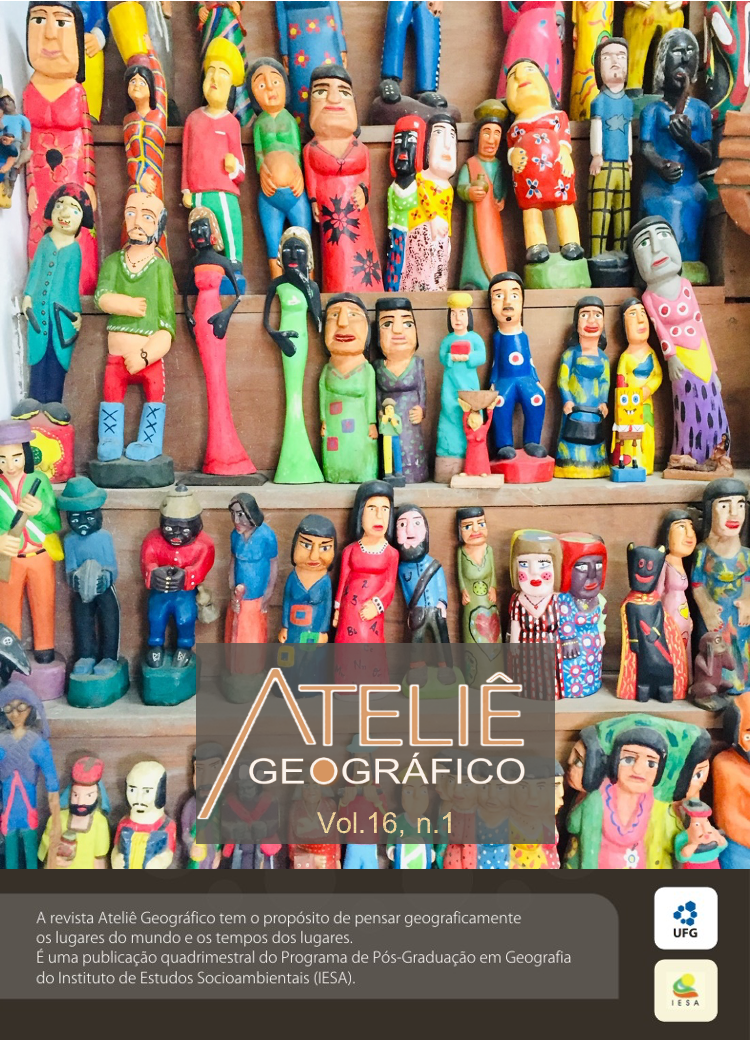Influence of Transport Infrastructure on Surface Temperature in a BRT corridor, in the city of Goiânia/GO
DOI:
https://doi.org/10.5216/ag.v16i1.71849Abstract
The artificialization in urban areas has contributed to the concentration of several environmental problems, among which is the change in urban microclimate, including surface temperature. Thus, this research aims to analyze the impacts of the construction of a Bus Rapid Transit System (BRT), which is located in the city of Goiânia, on surface temperature, before and after its implementation. The methodology involved the analysis of orbital remote sensing images from the Landsat 8 satellite, OLI, and TIRS sensors, manipulated in a Geographic Information System (GIS). For that purpose, it was necessary to calculate the brightness temperature; emissivity correction, and; surface temperature calculation. The results have revealed the alteration of the urban landscape influenced by the transportation corridor, the main ones being in the land surface temperature (SST), with the intensification of high temperatures in areas where there was an increase of paved and commercial surfaces and reduction of the temperature where arborization managements were employed.
Keywords: Use of land. Environmental impact. Transport. Microclimate.
Downloads
Downloads
Published
How to Cite
Issue
Section
License
Autores que publicam nesta revista concordam com os seguintes termos:- Autores mantém os direitos autorais e concedem à revista o direito de primeira publicação, com o trabalho simultaneamente licenciado sob a Licença Creative Commons Attribution que permite o compartilhamento do trabalho com reconhecimento da autoria e publicação inicial nesta revista.
- Os autores não serão remunerados pela publicação de trabalhos na Revista Ateliê Geográfico. Além disso, os conteúdos publicados são de inteira e exclusiva responsabilidade de seus autores, ainda que reservado aos editores o direito de proceder a ajustes textuais e de adequação às normas da publicação.
- Autores têm permissão e são estimulados a divulgar seu trabalho online (ex.: em repositórios institucionais ou na sua página pessoal), já que isso pode gerar alterações produtivas, bem como aumentar o impacto e a citação do trabalho publicado (Veja O Efeito do Acesso Livre).


